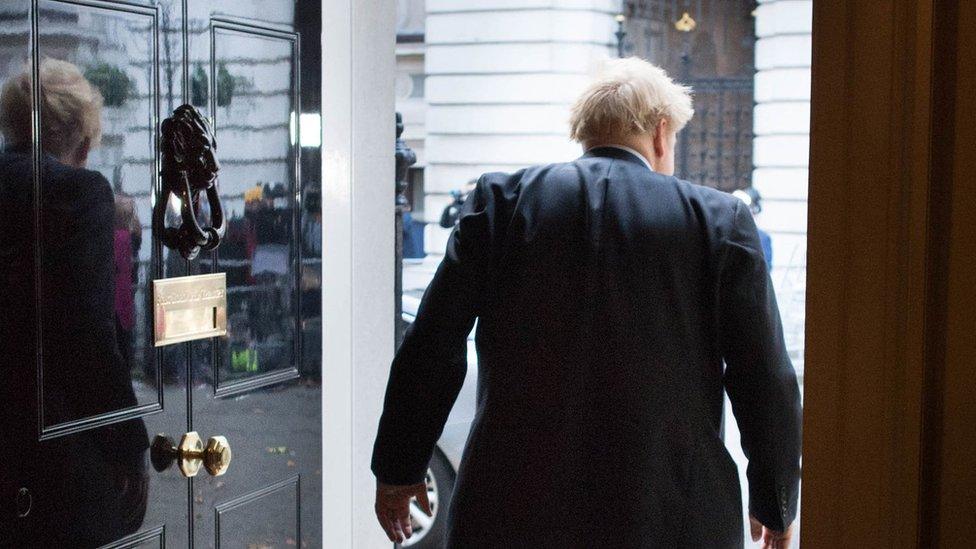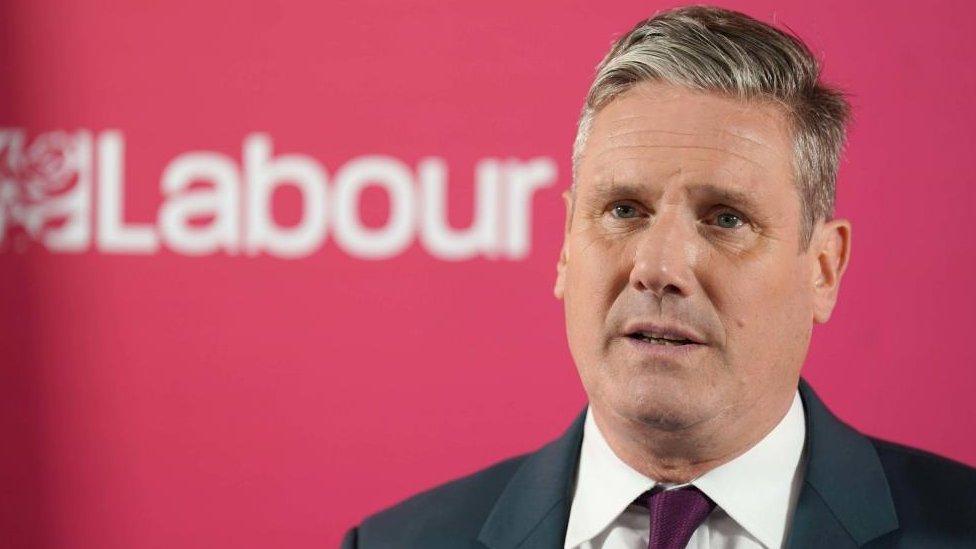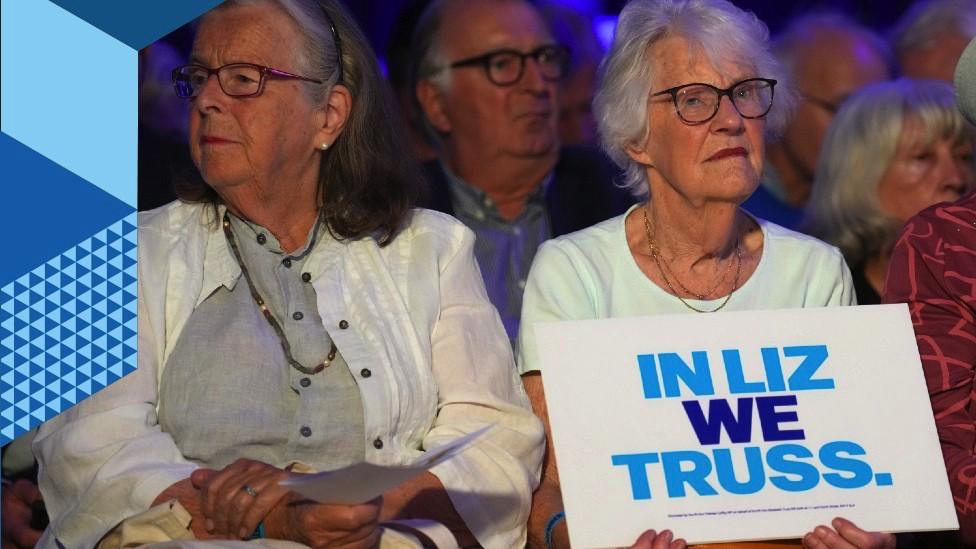Political landscape being re-shaped before our eyes
- Published

Boris Johnson has quit as Conservative leader but he has not yet left Downing Street
This is the week we found out, barring something totally unforeseen, who will lead the Labour Party into the next general election: Sir Keir Starmer.
And we found out who definitely won't be leading the Conservatives into it: Boris Johnson.
For two months, the work of detectives in Durham hit the pause button on Sir Keir Starmer's leadership of Labour, after he decided he would resign if he was fined, consistent with his demand that it should have meant the same for Boris Johnson.
Sir Keir is relieved.
But in the time it took for the police to reach a decision that allows him to draw the strongest contrast with the prime minister, Mr Johnson has resigned.
As the PM's political woes multiplied in recent months, he was, for Labour and others, a political target the size of a barn door.
And Sir Keir sought to define himself as everything Boris Johnson was not.
But now Mr Johnson will soon be the former prime minister, the Labour leader now faces the moving target of a range of possible future ones.
And whoever replaces Mr Johnson may not present Sir Keir with quite the same scope for critique as he's had in recent months.
That said, the new Conservative leader won't have a mandate to call their own, and so it will be easier for opponents to question their legitimacy as prime minister.

Sir Keir Starmer sought to define himself as everything Boris Johnson was not
And Labour will hope that Boris Johnson's successor won't have the appeal he did in all those seats the Tories under his leadership won from Labour last time, for the first time ever.
Plus, in post-Brexit Britain, and with both main Westminster parties accepting the fundamentals of our departure from the EU, to what extent will the central issue of the last general election have withered by the time of the next one?
The UK's relationship with our nearest neighbours doesn't feel to have stabilised yet into a new normal, but Brexit is far from the headline-grabber and passion-boiler it used to be for many.
So, what of the Conservative wannabes?
Their charm offensives are beginning in earnest.
Videos, newspaper articles, Twitter handles, websites.
A huge political challenge, with the biggest prize in British politics for the winner.
And here is the question: what does being Conservative mean in 2022?
We can safely assume all the candidates will fall over themselves to emphasise their integrity, given the perceived lack of it in Boris Johnson contributed to his spectacular loss of support on the Conservative benches.
Then, there is economics: Boris Johnson's government has been the highest-taxing, highest-spending administration in modern times, of any political colour. Should that change? How? And by when?
And there are cultural issues: the whole concept of "woke" - weaponised by some, proudly owned by others.
In short, prepare yourself for a blizzard of smiles, promises and visions.
There'll be Sir Keir Starmer for Labour, plus the offerings from the Scottish National Party, Liberal Democrats and others.
And then this growing flotilla of Conservatives, hoping to replace Boris Johnson.
The political landscape for the next general election is being re-shaped before our eyes, all because of what has happened over the last week.
Related topics
- Published5 September 2022
